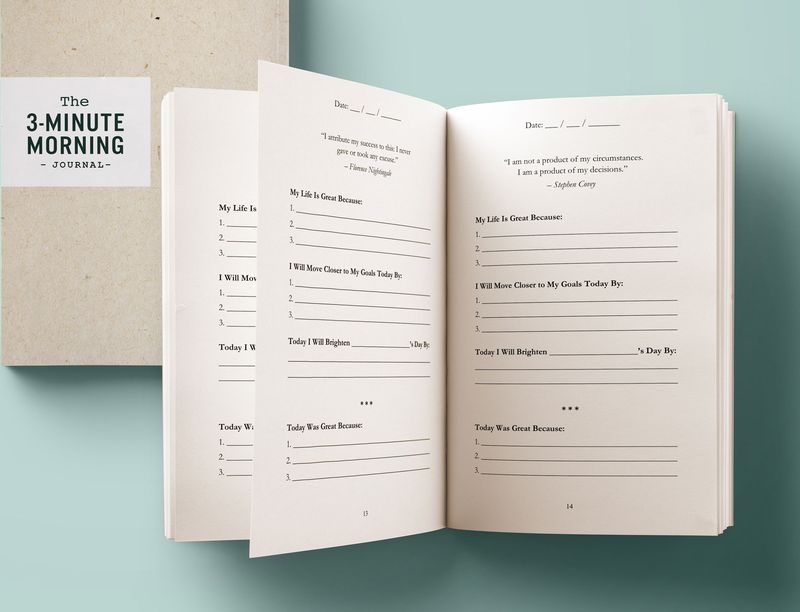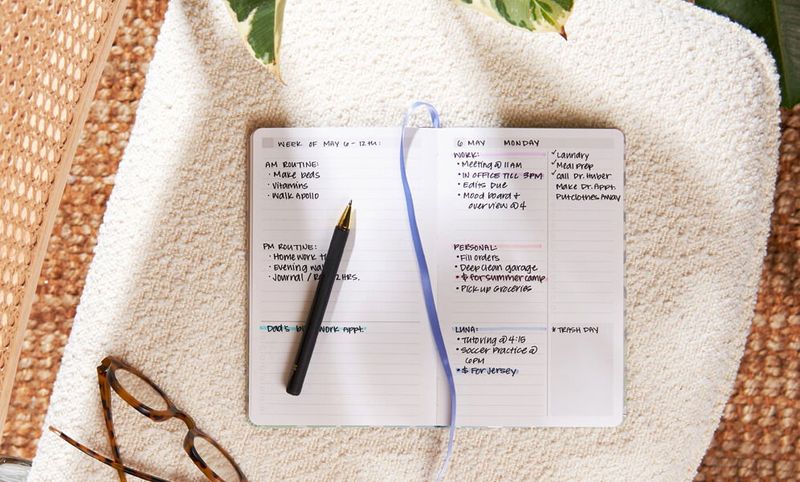15 Simple Daily Habits of Genuinely Happy People

What separates truly happy people from those who struggle with daily stress and negativity? The answer might surprise you – it’s not about big life changes or expensive purchases. Research shows that genuinely happy individuals practice small, consistent habits that boost their mood and outlook every single day. These simple routines take just minutes but create lasting positive changes in how they feel and interact with the world around them.
1. Morning Gratitude Practice

Before checking phones or rushing into daily tasks, happy people pause to acknowledge three things they appreciate. This simple ritual rewires the brain to notice positive aspects of life rather than focusing on problems.
Writing these thoughts in a journal or simply reflecting mentally creates a foundation of thankfulness. Many successful people credit this practice with transforming their entire perspective on challenges and setbacks.
Starting each day with appreciation sets a positive tone that carries through difficult moments and stressful situations.
2. Regular Physical Movement

Movement doesn’t require expensive gym memberships or intense workout sessions. Happy individuals find ways to get their bodies moving through dancing, walking, stretching, or playing with pets.
Physical activity releases endorphins, natural mood boosters that combat stress and anxiety. Even ten minutes of movement can shift energy levels and mental clarity dramatically.
Whether it’s taking stairs instead of elevators or having dance parties in the kitchen, incorporating movement becomes an enjoyable part of their routine rather than a chore.
3. Mindful Breathing Moments

Taking intentional deep breaths throughout the day helps reset stress responses and brings awareness to the present moment. Happy people use breathing as an anchor during overwhelming situations.
This practice doesn’t require special training or equipment – simply focusing on slow, deliberate breaths for thirty seconds can lower heart rate and calm racing thoughts.
Many incorporate breathing exercises during transitions between activities, creating natural pause points that prevent stress from building up throughout their day.
4. Connecting with Nature

Spending time outdoors, even briefly, provides mental health benefits that genuinely happy people prioritize daily. Fresh air and natural surroundings reduce cortisol levels and improve overall well-being.
This connection might involve tending plants, watching clouds, or simply opening windows to hear birds singing. Nature exposure doesn’t require hiking trails or camping trips.
Studies show that even viewing trees through windows can boost mood and creativity, making this habit accessible regardless of living situation or mobility.
5. Practicing Random Kindness

Small acts of kindness create ripple effects that boost happiness for both giver and receiver. Happy people look for opportunities to help others without expecting anything in return.
These gestures might include complimenting strangers, helping neighbors, or leaving encouraging notes for family members. Kindness doesn’t require money or grand gestures.
Research indicates that performing acts of kindness triggers the same neural pathways as receiving kindness, creating a natural happiness boost that lasts throughout the day.
6. Limiting Negative Media Consumption

Genuinely happy people are selective about information they consume, recognizing that constant exposure to negative news affects mental health. They stay informed without becoming overwhelmed by disturbing content.
Setting specific times for news consumption and choosing uplifting entertainment helps maintain emotional balance. This boundary protects mental space for positive thoughts and experiences.
Many replace doom-scrolling with activities that inspire or educate, such as reading uplifting books or listening to motivational podcasts that align with their values.
7. Celebrating Small Wins

Acknowledging daily accomplishments, no matter how minor, builds momentum and self-confidence. Happy people recognize that progress comes through small, consistent steps rather than dramatic breakthroughs.
Celebrations might involve treating themselves to favorite snacks, sharing achievements with friends, or simply taking a moment to feel proud of their efforts.
This habit trains the brain to notice success patterns and builds resilience during challenging periods when major victories feel distant or impossible.
8. Maintaining Social Connections

Regular communication with friends and family provides emotional support and strengthens relationships that contribute to long-term happiness. Happy people prioritize these connections despite busy schedules.
This might involve quick text messages, phone calls during commutes, or scheduling regular coffee dates. Quality matters more than quantity in these interactions.
Strong social bonds provide resilience during difficult times and multiply joy during positive experiences, creating a support network that enhances overall life satisfaction.
9. Learning Something New

Curiosity and continuous learning keep minds engaged and provide sense of growth that contributes to happiness. Happy people regularly expose themselves to new ideas, skills, or perspectives.
Learning opportunities exist everywhere – from trying new recipes to watching educational videos or asking questions during conversations. Formal education isn’t necessary for growth.
This habit combats boredom and stagnation while building confidence and expanding worldviews, creating excitement about future possibilities and personal development.
10. Practicing Self-Compassion

Speaking to themselves with the same kindness they’d show a good friend, happy people avoid harsh self-criticism that damages self-esteem and motivation.
When mistakes happen, they acknowledge feelings without judgment and focus on learning rather than punishment. This approach reduces anxiety and promotes emotional healing.
Self-compassion involves treating personal struggles with understanding and recognizing that imperfection is part of the human experience rather than a personal failing.
11. Creating Daily Rituals

Establishing meaningful routines provides structure and comfort that anchors happiness in daily life. These rituals might involve morning coffee ceremonies, evening walks, or bedtime reading.
Rituals create predictability in chaotic world and provide opportunities for mindfulness and reflection. They don’t need to be elaborate or time-consuming.
Having something special to look forward to each day, even something simple, creates anticipation and joy that makes ordinary moments feel more meaningful.
12. Organizing Personal Space

Maintaining tidy, organized environments reduces stress and creates sense of control that supports mental well-being. Happy people understand that external order often reflects internal peace.
This doesn’t require perfect cleanliness – simply having designated places for important items and clearing clutter regularly makes daily life smoother and more pleasant.
Organized spaces promote better focus and productivity while reducing time wasted searching for misplaced items, creating more opportunities for enjoyable activities.
13. Expressing Creativity

Engaging in creative activities provides emotional outlet and sense of accomplishment that enhances happiness. Happy people make time for artistic expression regardless of skill level.
Creativity might involve cooking, gardening, writing, crafting, or any activity that allows personal expression and experimentation. The process matters more than the outcome.
Creative pursuits activate different brain regions and provide healthy distraction from daily stresses while building confidence and providing tangible evidence of personal capabilities.
14. Setting Healthy Boundaries

Protecting personal time and energy by saying no to draining commitments allows happy people to focus on activities and relationships that truly matter.
Boundaries aren’t selfish – they’re necessary for maintaining mental health and preventing burnout. This includes limiting exposure to negative people and situations.
Clear boundaries create space for rest, reflection, and activities that bring joy, ensuring that energy is available for meaningful pursuits rather than obligations.
15. Ending with Reflection

Before sleep, happy people take a few minutes to reflect on the day’s experiences, acknowledging both challenges and successes without judgment.
This practice helps process emotions and experiences while identifying patterns that support or hinder happiness. It creates closure for each day.
Evening reflection might involve journaling, meditation, or simply quiet thinking time that prepares the mind for restful sleep and tomorrow’s possibilities.

Comments
Loading…